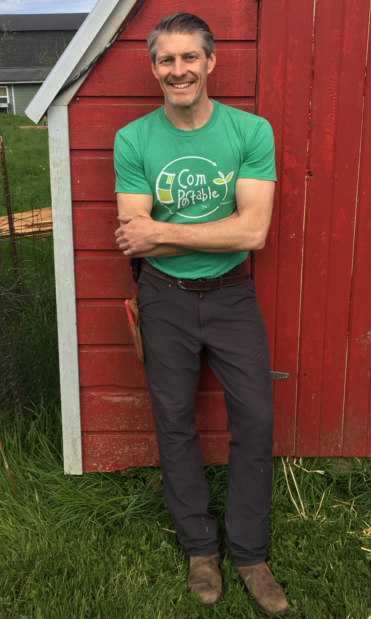I love keeping bees.
It’s not for the money, it’s for more important reasons.
When I started out with bees I felt overwhelmed. I was continually poking around – I learn by doing – and trying to figure out what the heck they were up to.

It’s now been a number of years I’ve had up to 4 hives at a time but I think I’ve barely started to learn what’s really going on. My approach to bees has changed tremendously. I’m still learning when I’m in the hive but I don’t think I’m in it to learn anymore.
Now it’s much more of an AWE FACTOR!

The activity of the hive completely mesmerizes me. Sometimes I find myself in tears. There’s so dang much taking place that I’m more and more sensing that I always miss more than I actually see. There’s so much intensity, purpose, symmetry, harmony, connectedness.
I’m much more inclined to look into my hives in the same way I look up at the stars at night. Yeah, stars are huge and far away while bees are teeny and right in front of me but they both engage me with something so profound.

When I ‘sleep’ outside, next to our pond, with my kids in summertime the magnitude of the night sky and stars leaves me slack jawed. I’m not lying there in my sleeping bag trying to figure out or formulate an understanding of the constellations. Rather, I’m feeling privileged to witness them and marveling at the wonder of creation.
I’ve realized I cannot really prepare myself to care for bees. As the bees demonstrate new (to me) behaviours and obstacles arise to challenge their survival, which has happened every season, I try to figure out whether I can or should try to help them out or whether I should stay out of the way so they can work more of their magic.
In addition to my own ineptitude as a beekeeper the little beauties have experienced queens die, doubling up of queens in a hive, a disease called chalkbrood, too much moisture causing mold and death, mite infestations, neighbours’ poisons annihilating whole colonies, relentless wasp invasions, cold and rain keeping them in at key times when pollen and nectar are abundant.
 Some seasons I’ve harvested more than 100 lbs. of honey from a single hive. Other seasons there’s nothing for me to enjoy– I leave it all for the bees to have sufficient for winter. Their ‘pantry’ needs to be full as the winter approaches or they won’t be around come springtime.
Some seasons I’ve harvested more than 100 lbs. of honey from a single hive. Other seasons there’s nothing for me to enjoy– I leave it all for the bees to have sufficient for winter. Their ‘pantry’ needs to be full as the winter approaches or they won’t be around come springtime.
Biodiversity lends itself to bees thriving. This means that backyards and gardens with lots of variety, as well as ditches and hedgerows, where many flowers, grasses, trees, wild berries etc are together offer strong chances for bees to succeed. On the other hand, farming and gardening that focuses on large production at low expense (often neglecting the long-term true cost of its actions) tends to emphasize extensive plantings of limited variety (mono crops) bolstered with an arsenal of chemical kill agents i.e pesticides and herbicides. In these settings, bees are doomed. Farming needs to mimic nature or it will not support the creatures which nature includes.
 I’ve gained plenty of knowledge to share about bees but I think my greatest wish is to transmit to others an appreciation for them.
I’ve gained plenty of knowledge to share about bees but I think my greatest wish is to transmit to others an appreciation for them.
To me, understanding bees is a distant second priority to the need for a heightened sense of awe and a realization of how reliant we are on them thriving.
It is common for us to say that a person with a bee suit and a tool or two made for the task is called a ‘beekeeper’ but I’ll be honest . . . the bees keep me more than I keep them. They have my heart.










